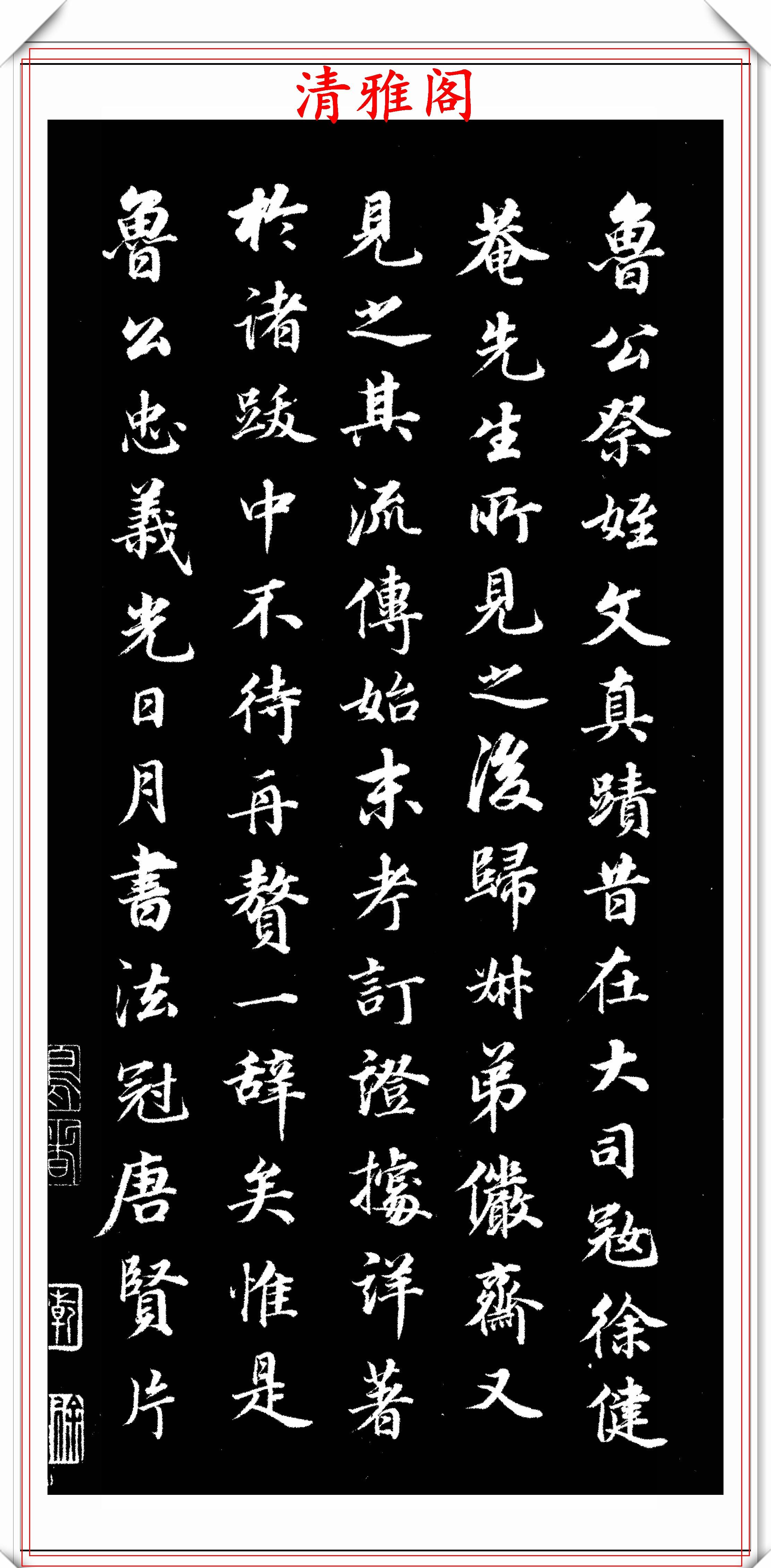preface:
Welcome to Qingyage, the original intention of Qingyage is to inherit the spirit of Chinese culture and carry forward the essence of Chinese art. To build an art exchange platform for the majority of art lovers, we will always uphold the purpose of creating high-quality calligraphy and painting content. If you like our content, please follow, like, favorite, share, retweet. Every time you participate, it's a powerful motivator for us to create quality content.
Disclaimer: This article is the original headline of Qingyage calligraphy and painting, and the copyright of the picture and text belongs to Qingyage; if there is any reprint, please indicate the source, thank you!
The use of characters in ancient times was a symbol of the high class, and the changes of Chinese characters in the dynasties and the mainstream fonts at that time caused the necessity of artistic composition - diversity, and the promotion of high-level and the influence of distinctive calligraphers accumulated the art of Chinese character writing. Judging from some symbols on ancient artifacts excavated by archaeology, the ancestors mainly relied on a form of symbol that could be understood to communicate across time and space. With the development and change of these symbols, the continuous enrichment of connotations has also made calligraphy one of the core carriers of Chinese culture, which carries the cosmology, aesthetics, and philosophy of survival of Chinese, and is the carrier for a person to obtain aesthetic pleasure, spiritual refuge, and settle down.
<h1 class="pgc-h-arrow-right" > Qing Dynasty great poet Wang Yanling Xingkai Authentic Manuscript Appreciation:</h1>

(Circle cards have been added here, please check out the today's headlines client)
<h1 class="pgc-h-arrow-right" > booker introduction:</h1>
Wang Yanling (1642-1725): Zi Zhenshi, Yizi Rongshi, Hou Maohu, Late Songqiao Old Man, a native of Zhangyan Town, Huating County, Jiangnan (present-day Jinshan District, Shanghai), and the eldest son of Wang Guangxin. Throughout the two dynasties, he was cautious and peaceful in his life, "when dealing with major events, he did not try to show similarities and differences, but he slowed down his words and satirized, and immediately saw the transfer", and he did not take credit for himself, promoted talents, and never wanted those who received them to know, and those who knew praised. The poems are based on Tang poems, "not exceeding the size, and abiding by the law", in addition to the system and rewards, mainly write leisure and leisure. The rules are neat, the words are elegant, and the form is quite exquisite. The lyric works are quite emotional, writing scenes, and the history is picturesque. Wen also has a heroic vitality.